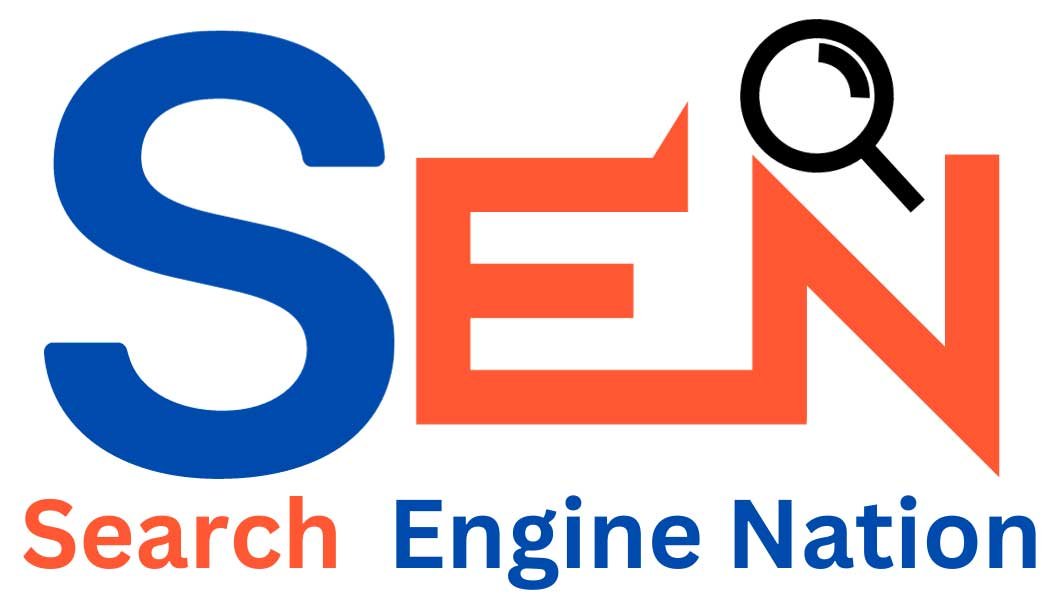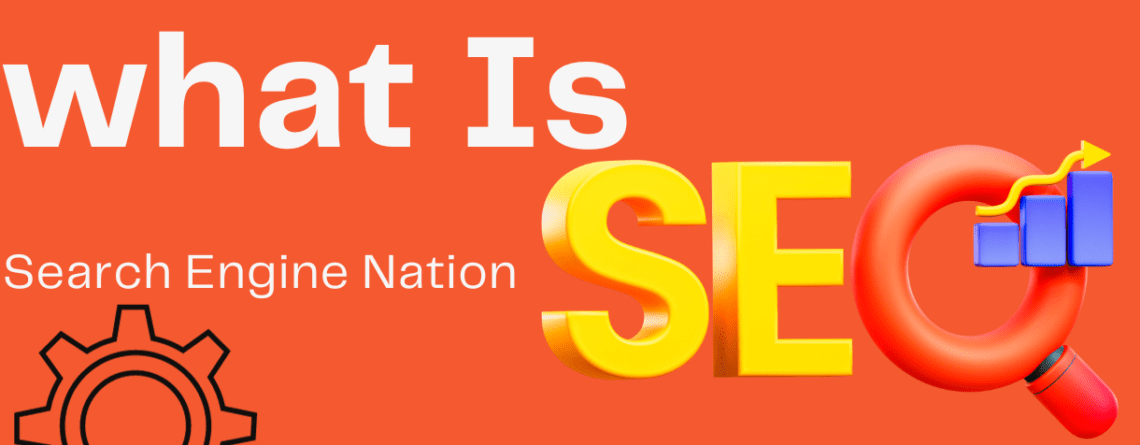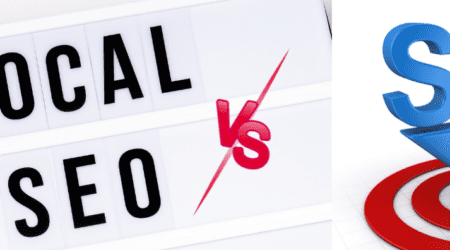What Is (SEO) Search Engine Optimization?
Anshita Singh2024-01-21T07:08:06+00:00What Is SEO And The Role Of SEO In A Website.
SEO stands for “search engine optimization.” In simple terms. Seo is an organic way to increase traffic on your website. SEO is an utmost important tool for companies and individuals who want to build a strong online presence of their website. The main aim of SEO is to increase the visibility of a website in search engine results through applying a variety of techniques. There is a google processing of more than 3.5 billion searches per day. SEO aims to make your website more aesthetically pleasing and accessible to search engines to rank higher in search results. Search engines use sophisticated algorithms while determining the authority and relevance of a webpage in response to an inquiry of the user. There are numerous tactics and methods that are used to make it easier for search engines to comprehend, classify, and rank your content of the website in SEO. The more prominent your pages are in search results, the more likely you are to be encountered and clicked on. Ultimately, the objective of search engine optimization is to facilitate the recruitment of website visitors who will become customers, clients or a repeat audience.
What you’ll learn in this guide:
How Does Seo Work
Why Seo Is Important.
Types Of Seo
How Do Search Engines Work
How Does SEO Work?
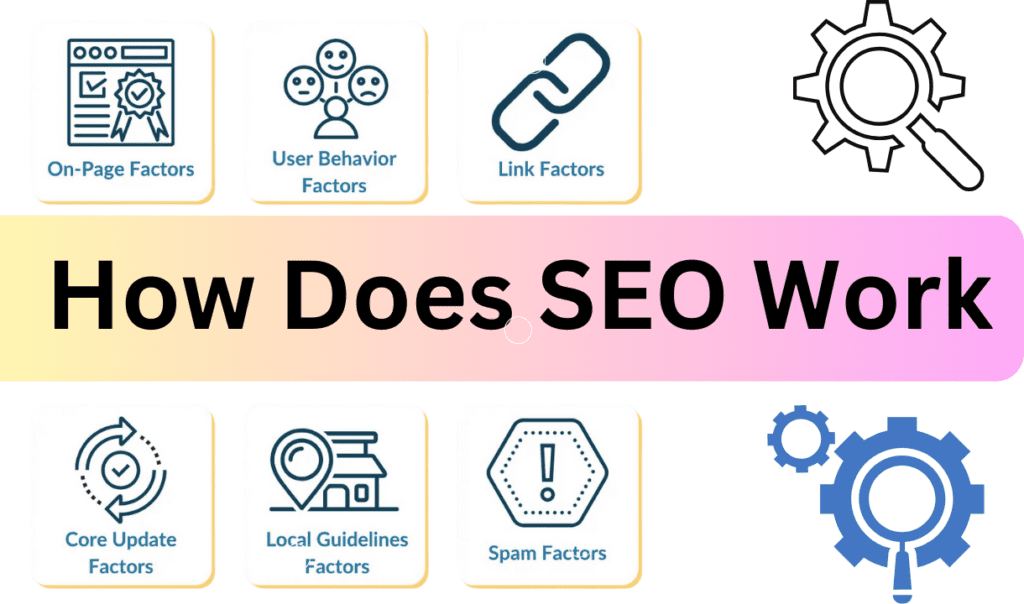
SEO is the multidimensional approach that aims to increase an exposure of a website in search engine rankings. Having an online presence is critical for both individuals and organizations; thus, knowing the operation of SEO is important in the digital age.
Following are the key component of search engine optimization
Alignment: Aligning a content in the website with search engines like Google, Bing, and Yahoo is known as search engine optimization (SEO). These algorithms consider a number of different parameters to evaluate a quality and relevancy of a webpage in relation to a search query of the user. Thus, SEO involves maximizing these elements to raise a search engine rating of a website and raise the chances that a target audience will notice it.
Keywords: keywords are a very important part of SEO. Individuals type these terms and phrases into search engines when searching for information. Website owners can find the most effective and relevant terms in their niche through completing keyword research. Search engines are informed that the information is pertinent to those specific inquiries when these keywords are organically incorporated into titles, headers, and body text on websites.
Quality of content: it is yet another important component of SEO. Search engines give priority to relevant, interesting, and helpful content. As a result, producing unique and high-quality content is essential for the success of SEO. This information should be thorough and authoritative, presenting the website as a reliable authority in its field as well as answering questions of consumers.
Links building: building links is a crucial component of an SEO plan. Links pointing to other reliable websites are seen by search engines as endorsements of the linked authority of content. Establishing a network of high-quality backlinks increases the authority of a website and increases the likelihood that it will appear higher in search results. However, it is imperative that you concentrate on obtaining useful and natural links since search engines punish manipulative link-building approaches.
Technical SEO: technical SEO is the basis for all other SEO initiatives. This part involves improving a technical component of a website so that search engines can better crawl and index it. This includes making sure that the website is mobile-friendly, streamlining the page load time, and optimizing the site structure. Technical SEO improves a ranking of a website through making sure that search engine bots can effectively explore and comprehend its content.
User experience is becoming a more and more important component of SEO. Search engines give priority to websites that provide a smooth and good experience to users. Improved user experience is a result of elements like mobile friendliness, simple navigation, and quick page loads, which also have an indirect impact on a search engine ranking of websites.
Why Seo Is Important.
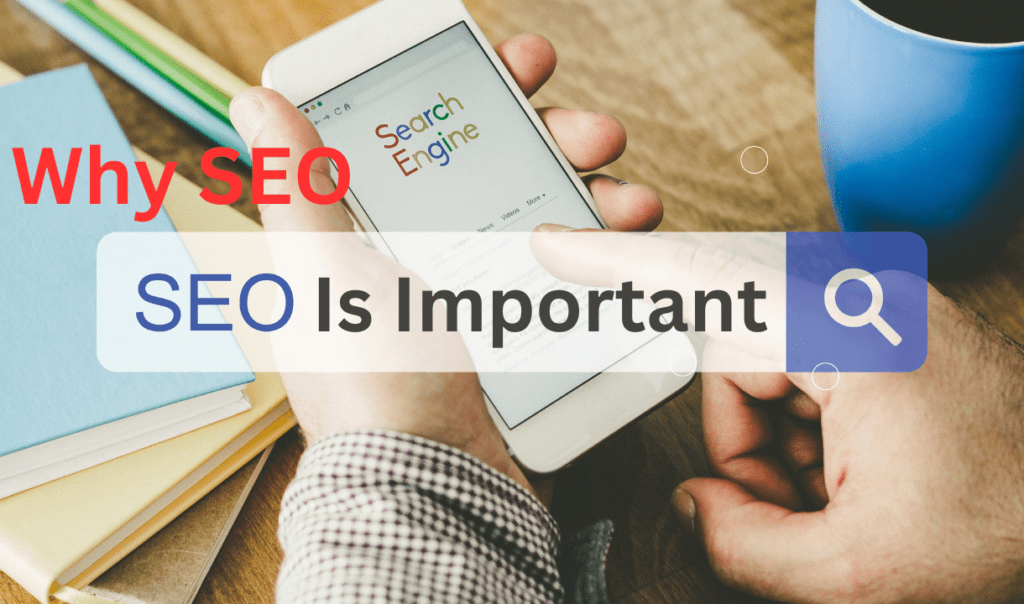
SEO is a critical marketing channel. First, and foremost: organic search delivers 55% of all website traffic.
This is one of the main reasons why the global SEO industry is expected to reach $122.11 billion by 2028. SEO drives real business results for brands, companies and organizations of all sizes.
Also, SEO is crucial because the search engine’s results pages (or SERPs) are highly competitive, filled with features that searchers (and advertisers) want. SERP features include:
Panels of knowledge.
Featured snippets.
Maps.
Images.
Videos.
High stories (newscasting).
Others also question.
Carousels.
Another important reason for brands and businesses is that unlike other marketing methods, good SEO is long-lasting. When a paid promotion is finished, so is the traffic. The traffic from social media is at best indecipherable – and a portion of what it originally was.
SEO is the foundational principle of holistic marketing, all of your company’s actions are significant. Once you understand what your users want, you can then utilize that information to implement it across your:
Campaigns (paid and organic).
The content of the website.
Social media properties.
Any website or online business that wants to succeed needs to invest in SEO. SEO is essential for maintaining visibility, trust, and natural traffic in this digital era, where search engines like google, bing, and yahoo rule the internet.
Following are the reasons that shows that SEO is essential in this modern internet world of today-
- Seo Increases Visibility Of The Website. A well-optimized website is more likely to show up on the first page of search engine results when visitors look for content, goods, or services associated with your niche. Having a high level of visibility increases the likelihood of attracting the visitors since most clicks go to the top results.
- Additionally, Seo Fosters Trust And Trustworthiness. Users are more likely to trust those that rank highly in search results because they believe these websites to be more authoritative and relevant. You build trust with search engines and users through optimizing the content, architecture, and user experience of your website. This increases the chances that users will interact with your material or make a purchase. SEO help Startups And Small Businesses your startup will gain more online visibility, higher rankings, customers, and sales.
- User Experience Is Also Enhanced From Seo; thus, search engines give preference to the websites that offer a satisfying user experience. This covers quick loading times, compatibility for mobile devices, pertinent content, and simple navigation. You improve the overall user experience of your site while also appeasing search engines through concentrating on these elements.
In addition, SEO is less expensive than paid advertising. Even though sponsored advertising can yield results right away, it necessitates ongoing commitment. However, advantages of SEO build up over time and offer long-lasting, sustainable results without the recurring expenses of sponsored advertising. Therefore, SEO is essential for success online. It increases exposure, builds reputation, improves user experience, and offers an affordable way to generate organic traffic. Investing in SEO is a strategic need in a time when having an online presence is synonymous with commercial success for any company or individual wishing to succeed in the digital era. SEO is a method of channeling traffic that is necessary to achieve important business objectives (e.g., conversions, visits, sales). It also promotes trust: a website that is highly ranked is generally considered to be trustworthy or authoritative, these properties are important to Google because they help to increase the rankings.
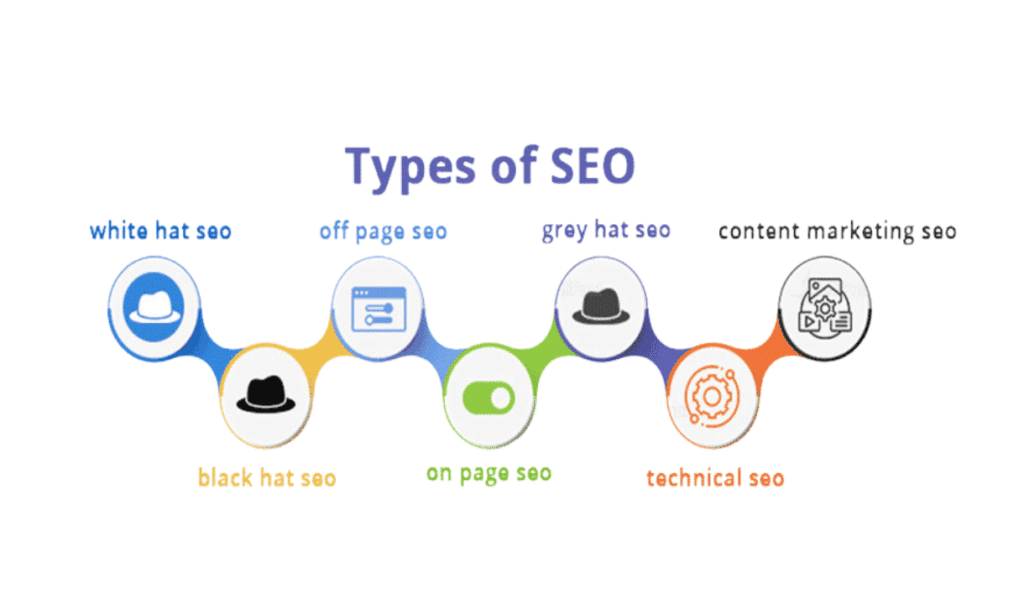
Search engine optimization (SEO) is the foundation of digital success in the modern era. It increases the online visibility of the website and makes sure that the related people can see the material of your website easily. On-Page SEO, Off-Page SEO, and Technical SEO are the three types of SEO that are generally used to rank the website.
On-Page SEO:
The on-page SEO describes optimization strategies that are specifically applied to the content and format of your website to improve its search engine ranking. It includes creating content with great care and making sure that every page is customized to satisfy search engine algorithms as well as user needs.
Read here are 9 SEO checklist
On-Page SEO Must Have The Following:
Content Relevance And Quality: The main requirement of On-Page SEO is high-quality content for websites. It takes more than just adding keywords to create informative, interesting, and relevant content. This involves maintaining the ideal keyword density, having appropriate formatting, and optimization of headings.
Optimizing Your Keywords: Keywords are the main language that is spoken by search engines. The vital components of on-page SEO are strategic keyword placement in headings, meta descriptions, titles, and other content elements. Keyword stuffing might get you penalized by search engines; therefore, making a balance of keywords is crucial.
Page Load Speed And User Experience (UX): search engines give preference to those websites that have an excellent user experience. on-page SEO also considers easy navigation, mobile friendliness, and page load speed. It is important to optimize pictures, make use of browser cache, and reduce HTTP requests.
Meta Tags And Descriptions: an essential component of On-Page SEO is creating captivating meta tags and descriptions. These excerpts encourage users to click on your material and affect search engine results. Every page ought to have a distinct meta title and description.
Keywords And Content Optimization: Keyword optimization is a basic component of search engine optimization. The words and phrases typed from people into search engines are known as keywords. Finding and carefully using pertinent keywords in your writing can have a big impact on the visibility of your website. A balance must be maintained in all aspects; it means information must be relevant and valuable to search engine optimization as well as all the users.
Developing excellent, educational, and captivating content is essential for SEO performance. Search engines give preference to information that fully answers searches of users and matches their intent. Updating your material frequently and using a variety of media such as videos and graphics can enhance user satisfaction and raise the search engine ranking of your website.
Off-Page SEO:
Off-Page SEO is centered on outside elements that affect authority, popularity, and trustworthiness on the internet of your website. Whereas On-Page SEO is concentrated on improving your website directly. The goal of off-page optimization is to improve search engine and user perceptions of your website:
expertise
experience
authority
Credibility
association
Popularity
When reputable and relevant websites and people link to or quote your website’s content, they are essentially “voting” on its quality. Search engines and the searching public can see this as a vote on why your organization deserves to be visible on the web. You may have to work hard to get those “votes,” and you may get some without even asking, but in general, the goal of off-page SEO is to build an effective digital footprint that demonstrates why you want it worthy of being shown Indexed by search engines and voted on by viewers.
Following Are The Activities Performed In Off-Page SEO:
Link Building: development of high-quality backlinks is a key component of Off-Page SEO. The search engines see backlinks from other websites as endorsements; but quality is prioritized over quantity. Search rankings are more impacted from hyperlinks that are relevant, authoritative, and naturally occurring.
Social Media Engagement: Off-Page SEO is influenced by social signals like likes, shares, and comments. Engaging in active conversation on social media can increase the reach of your content, build brand recognition, and increase backlinks to your website.
Guest Posting: Guest posting is a popular off-page SEO technique for writing and publishing content on someone’s website or blog. This involves collaborating with other website owners or bloggers to contribute valuable articles or posts that are relevant to their audience. The benefits of guest posting are many. First, it allows you to reach an established audience and reach a wider group of readers who may not be aware of your website or brand. Additionally, and more importantly, guest posting provides the opportunity to build high-quality backlinks to your website. Including a link to your website in a guest post is a valuable tip that can improve your search engine rankings. Search engines place great value on backlinks from reputable and relevant websites because they demonstrate the trustworthiness and authority of your website. There are several blogs open for guest posts. All you need to do is identify the keywords that interest you and then search for them on Google by:
Keyword + “write for us”
Keyword + “become a contributor”
Keyword + “contribute”
Keyword + “guest blogging”
Online Reputation
Management: Search engine rankings are strongly impacted by your online reputation. Off-page SEO involves keeping a positive online reputation, handling reviews, and replying to client comments. Both consumers and search engines are more likely to trust a website with an excellent reputation.
Influencer Marketing: Working with prominent figures in your field will greatly improve your Off-Page SEO. Influencers lend credibility to your work and increase the visibility of your brand by endorsing it or providing links to it.
How To Do Off-Page SEO:
Off-Page Seo May Differ For Each Organization, But This Process Works For Most Situations:
- Determine your goals: do you want to gain more brand awareness, more links, more traffic, higher or wider rankings, more reviews, visitors spending more on your website Time, or something else? Be specific about what you want to achieve to measure the success of your efforts or if you need to adjust your activities, goals, or expectations.
- Implement tracking – Apply analytics to all aspects of activity that can be tracked.
- Determine your assets – Evaluate whether the content you offer is worthy of being linked to the web, shared on social media, or acted upon by the public.
- Activate your assets, whether publishing a new article, emailing a link request, requesting to be a podcast guest, reaching out to social influencers, or hanging a new sign in the window asking for reviews: Record the start date and type of your campaign.
- Measure results – benchmarks to measure success at different points in time. The results of some forms of off-page SEO can take months or even years to develop. Learn from your experiments and document your successes and further discoveries.
Technical SEO:
Technical SEO focuses on the backend features of your website to make sure that search engines can effectively crawl, index, and comprehend your material. It includes technical aspect optimization that affects performance of your website in search results. Below mentioned are tools of technical SEO
- Website structure and crawling: Search engine bots find it simpler to crawl and index your pages when your website is structured properly. Technical SEO has parts such as making a logical sitemap, directing crawlers with robots.txt files, and resolving crawl issues.
- Mobile optimization: Search engines give preference to websites that are optimized for mobile devices due to the growing usage of these gadgets. Technical SEO consists of making sure that the design is responsive, optimizing for mobile, and improving the user experience on smaller displays.
- Core web vitals and page speed: page speed is one of the most important ranking factors. Technical SEO includes picture optimization, browser caching, and fixing problems affecting core web vitals. These are measurements for visual stability, interactivity, and website loading speed.
Schema markup: This improves the interpretation of content by search engines. Additionally, it can produce rich snippets in search results, thus, increasing user engagement and click-through rates.
On-Page, Off-Page, and Technical SEO are all essential for online success. Together, these three create a strong SEO strategy that satisfies search engines and offers users a smooth, interesting experience. You may improve your exposure of your website, generate organic traffic, and forge a solid online presence in the crowded online market. It is done through comprehending and putting these strategies into practice.
How Do Search Engines Work?

Search engines are essential in the digital world because they provide access to a wide range of information on the internet. These intricate systems index and retrieve pertinent content using sophisticated algorithms. Thus, Seo makes sure that it will be possible for users to locate information fast and effectively. There are multiple crucial processes in the process, ranging from indexing, crawling, ranking, and displaying search results.
Crawling is the initial stage of the search engine optimization process. Search engine crawlers also known as bots or spiders are programs that automatically scour the internet for fresh and updated content. These crawlers build a vast network of linked web sites through following links from one website to another. The objective is to guarantee that the search engine has a thorough comprehension of the stuff accessible on the internet.
- Indexing: The process of indexing comes after the crawlers have retrieved web pages. In this stage, the crawling information is analysed and arranged by the search engine. The first step in the indexing process is building a database with essential components of each page such as links, metadata, and keywords. This database is the starting point for producing search results. Search engines can swiftly obtain pertinent material due to indexing when consumers start a search query.
- Ranking: The algorithm of search engines is used to identify the most pertinent results when a user types a query. A number of factors are evaluated as part of the ranking process to prioritize pages based on their relevance to the query of the users. Algorithms consider factors like user experience, page quality, keyword density, and the quantity and calibre of inbound links. Pages that most closely match these criteria are ranked higher in the search results.
Algorithmic factors: search engines constantly improve their algorithms to deliver more precise and pertinent results. A growing number of factors are important such as the new content, mobile friendliness, and page load speed. In addition, user behaviour is considered when evaluating the calibre of search results such as click-through and bounce rates. Algorithm evolution is a dynamic process that seeks to adjust to evolving user behaviour and technology breakthroughs.
SERP (search engine results page): The Search Engine Results Page (SERP) is the product of crawling, indexing, and ranking. The search engine returns a list of results that are most relevant to the query entered by the user. In search engine results pages (SERPs), sponsored results that advertisers pay to put at the top of the page are combined with organic results that are produced via crawling and indexing.
- User experience: providing a great user experience is a top priority for search engines. This includes considering the intent of users while still providing quick and pertinent results. Snippets, knowledge graphs, and rich results are examples of features that improve the search experience through offering succinct responses and more context right on the SERP.
- Constant evolution: Search engines are always getting better. Search engines must change as technology does and user behaviour does to remain relevant. Algorithm modifications and upgrades are made on a regular basis to enhance the precision of the findings and tackle new issues like stopping spam and protecting user information.
Therefore, search engines are complex systems that use a combination of crawling, indexing, and ranking techniques to arrange and retrieve enormous volumes of online data. The success of search engines in giving people the information they need can be attributed to the development of algorithms, user-centric design, and a dedication to relevancy.
